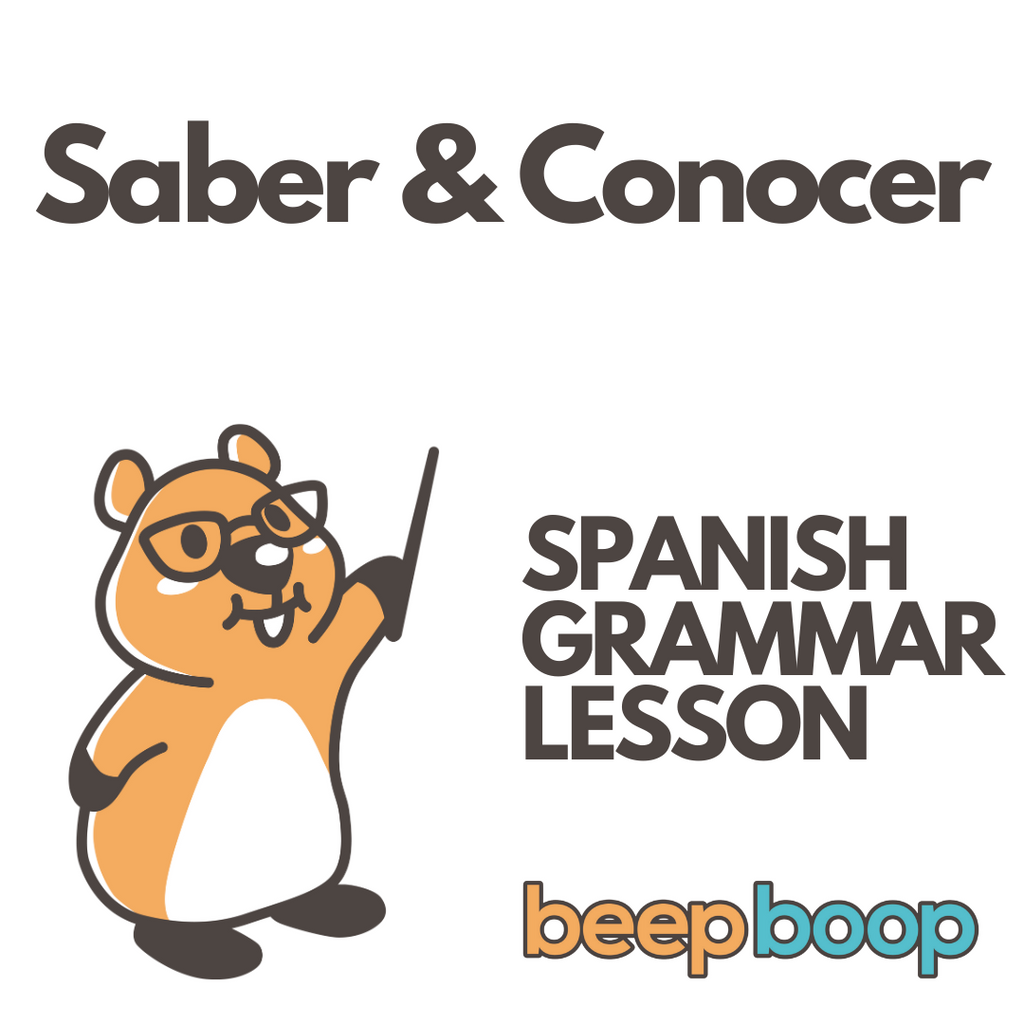The verbs saber and conocer both translate to "to know" in English, but are used in different contexts in Spanish. Use them interchangeability and you may get confused looks... and probably a lot of adoration for how hard you're trying to learn Spanish. Read the below and then book a free Drill to practice live with our native Spanish instructors. Also, check out TV Club: Episode 7 of Destinos where Saber and Conocer are covered in depth.
Saber
"Saber" is derived from the Latin word "sapere," which means "to taste" or "to be wise." Over time, its meaning in Spanish evolved to "to know" for the follow instances:
-
Information or Facts: "Saber" is used when talking about knowing specific pieces of information or facts.
-
Yo sé la respuesta. / I know the answer.
-
Skills: "Saber" is also used to express knowing how to do something, or skills.
-
Ella sabe cocinar muy bien. / She knows how to cook very well
-
When followed by a verb in infinitive:
-
Ellos saben bailar. / They know how to dance.
Conocer
"Conocer" is derived from the Latin word "cognoscere," which means "to get to know" or "to recognize" and is used in these instances:
- People: When talking about being familiar with or acquainted with someone, "conocer" is used.
-
Yo conozco a Maria. / I know Maria.
- Places: "Conocer" is used to express familiarity with a place.
-
Tú conoces París? / Are you familiar with Paris (or Have you been to Paris?)
- General familiarity with a subject/topic: Unlike specific facts, if you're familiar with a certain topic or subject in a general sense, "conocer" is the verb to use.
-
Ella conoce la literatura española. / She is familiar with Spanish literature.
- Direct Objects: When used with direct objects, "conocer" can also mean "to meet" for the first time.
- Ayer, conocí al amigo de Juan. / Yesterday, I met Juan’s friend.
Key differences to remember
These verbs aren’t interchangeable, so it’s crucial to understand the distinctions to communicate effectively in Spanish.
- Saber = to know a fact, piece of information, or a skill.
- Conocer = to be familiar or acquainted with a person, place, or subject.
Another tip to distinguish between the two is to think of saber as "to know something" and conocer as "to know of something or someone."
Practice what you've just learned in a free Drill

Beepboop offers live Drills taught by native Spanish speakers that you can observe for free. Observing is a great way to train your ear while expanding your Spanish vocab and knowledge of Latin American and Spanish culture.
Observing is great, but if you really want to speak Spanish fluently, you'll need to practice with native Spanish speakers as much as possible... Like every day! Thankfully, Beepboop Pro exists.
How Beepboop Pro Works
- Improve your spoken Spanish rapidly by joining one 25-minute Pro Drill every day
- During a Pro Drill, a native Spanish-speaking instructor guides you and up to 3 students through rapid (yet low-stress) role-plays simulating real-life scenarios
- Pro Drills run morning till late at night. Hop into an ongoing one or book ahead
- Prepare for hours before each Pro Drill or just show up and wing it! Our instructors will meet you where you are

